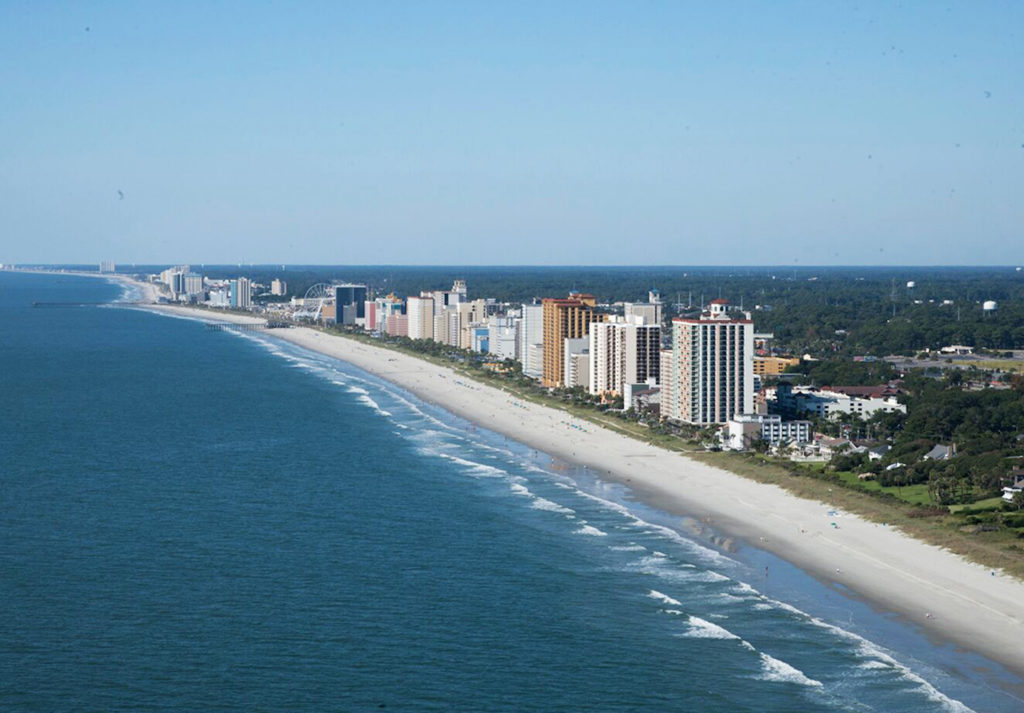Myrtle Beach, a beloved destination on the South Carolina coast, is known for its stunning sandy beaches, vibrant nightlife, and, of course, its unique weather patterns. Understanding the weather in Myrtle Beach is crucial for planning the perfect vacation, whether you’re looking to bask in the sun, explore local attractions, or enjoy outdoor activities. In this comprehensive guide, we’ll delve into every aspect of Myrtle Beach weather, from seasonal changes to tips on how to make the most of your trip.
Understanding Myrtle Beach Weather
Overview of Myrtle Beach Climate
Myrtle Beach boasts a humid subtropical climate, characterized by hot summers and mild winters. This climate makes it a year-round destination, appealing to visitors seeking sun-soaked beach days and pleasant evenings.
Seasonal Weather Patterns
Spring Weather (March to May)
Spring in Myrtle Beach is a delightful season, with temperatures ranging from the mid-60s to the upper 70s Fahrenheit (18-26°C). This time of year is perfect for outdoor activities like golfing and exploring nature trails. The occasional rain shower keeps the scenery lush and vibrant.
Summer Weather (June to August)
Summer is the peak tourist season, with temperatures soaring into the high 80s and low 90s Fahrenheit (30-35°C). The ocean temperature is warm, making it ideal for swimming and water sports. Be prepared for afternoon thunderstorms, which are common but usually brief.
Fall Weather (September to November)
Fall is a wonderful time to visit Myrtle Beach, with temperatures cooling down to the 70s and 80s Fahrenheit (21-29°C). The crowds thin out, making the mood more relaxed. This season offers pleasant beach days and cooler nights.
Winter Weather (December to February)
Winter in Myrtle Beach is mild, with temperatures ranging from the 40s to the 60s Fahrenheit (4-16°C). While swimming might be off the table, it’s a great time for golf and other outdoor activities without the intense heat.
Monthly Breakdown of Myrtle Beach Weather
January
- Average High: 56°F (13°C)
- Average Low: 38°F (3°C)
- Precipitation: Moderate
February
- Average High: 60°F (16°C)
- Average Low: 40°F (4°C)
- Precipitation: Moderate
March
- Average High: 66°F (19°C)
- Average Low: 46°F (8°C)
- Precipitation: Moderate
April
- Average High: 74°F (23°C)
- Average Low: 53°F (12°C)
- Precipitation: Low
May
- Average High: 81°F (27°C)
- Average Low: 61°F (16°C)
- Precipitation: Low
June
- Average High: 86°F (30°C)
- Average Low: 69°F (21°C)
- Precipitation: High
July
- Average High: 89°F (32°C)
- Average Low: 73°F (23°C)
- Precipitation: High
August
- Average High: 88°F (31°C)
- Average Low: 72°F (22°C)
- Precipitation: High
September
- Average High: 84°F (29°C)
- Average Low: 68°F (20°C)
- Precipitation: Moderate
October
- Average High: 76°F (24°C)
- Average Low: 57°F (14°C)
- Precipitation: Low
November
- Average High: 68°F (20°C)
- Average Low: 48°F (9°C)
- Precipitation: Low
December
- Average High: 60°F (16°C)
- Average Low: 41°F (5°C)
- Precipitation: Moderate
Weather Hazards in Myrtle Beach
Hurricanes and Tropical Storms
Myrtle Beach is occasionally affected by hurricanes and tropical storms, particularly during the Atlantic hurricane season from June to November. It’s essential to stay informed about weather alerts and have a plan in place during these months.
Thunderstorms
Afternoon thunderstorms are common in the summer. While they are usually brief, they can bring heavy rain, lightning, and gusty winds. It’s advisable to seek shelter during these storms.
Best Time to Visit Myrtle Beach
You decide when is the best time to go to Myrtle Beach. Summer is great for people who like warm weather and fun people on the beach. If you’d rather have cooler weather and fewer people, though, you might want to go in the spring or fall.
Tips for Planning Your Trip Based on Weather
Pack Accordingly
- Summer: Lightweight clothing, sunscreen, hats, and sunglasses.
- Spring/Fall: Layered clothing to adjust to temperature changes.
- Winter: Light jackets or sweaters for cooler evenings.
Plan Indoor Activities
In case of rain or thunderstorms, have a list of indoor activities such as visiting museums, shopping, or dining at local restaurants.
Stay Hydrated
The heat and humidity can be intense in the summer, so make sure to drink plenty of water and take breaks in the shade or indoors.
Visit Now: What Country Is Long Beach In?
Myrtle Beach Weather FAQs
Q1. Is Myrtle Beach weather suitable for a winter vacation?
Yes, Myrtle Beach has mild winters, making it a great destination for those looking to escape harsher northern climates.
Q2. How often does it rain in Myrtle Beach during the summer?
Rain is frequent in the summer, with brief thunderstorms common in the afternoon.
Q3. What is the hurricane season in Myrtle Beach?
The hurricane season runs from June to November, with the highest risk typically in August and September.
Q4. Can you swim in the ocean year-round in Myrtle Beach?
While the ocean is warm in the summer, it can be too cold for swimming in the winter months.
Q5. What is the best time to visit Myrtle Beach to avoid crowds?
Visiting in the spring or fall offers milder weather and fewer tourists, providing a more relaxed experience.




